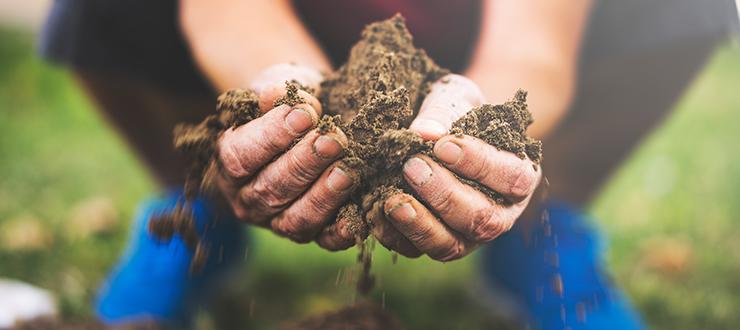
Vegetable gardens are highly-prized spaces for many with a green thumb as this type of garden provides nourishment for the mind, body and soul. There’s nothing quite like the feeling of planting a seed, helping it grow and then putting it on your table for your family to enjoy.
If you are ready to commit to growing a vegetable garden or want to expand on the one you already have, follow these tips to make sure you start it off right.
- Clear the area. Many gardeners are put off at the idea to create or expand a garden bed because of the amount of work it takes to prep the area. Grass, weeds and compacted soil are all roadblocks to getting your garden off to a great start. Luckily, RM18 can do most of the heavy lifting. Spray it on the area you want to use and it does the rest; it works on contact to kill grass and weeds but won’t harm the soil. Once you’ve killed the existing vegetation, lightly till the plant matter back into the soil. The best part is you can apply RM18 and be ready to plant in as little as three days.
- Add organic matter. Along with the plant matter you’ve worked back into the soil, it’s a good idea to add manure for extra nitrogen. Because manure provides readily-available nutrients to soil organisms and plant, it works faster than compost which has been decomposed. If you don’t know where your manure comes from, be aware it could carry pathogens that could be transmitted to root vegetables and lettuces so wait three months between applying and harvest.
- Test your soil. We highly recommend testing your soil before applying random minerals to improve it. A soil test will measure all of the important macro and micro-nutrients in your soil that your plants need, including the pH. The results will allow you to apply the correct amount of fertilizer and lime. Most state extension services offer in-depth testing of soil samples (find your local Extension office here) or you can grab one from a local home improvement store.
- Keep it covered. Spreading a layer of mulch, grass clippings or even newspaper will protect the soil from drying out and help return nutrients into it. The more layers of coverage you build up over the years, the better your soil will become.
- Start a compost pile. Creating your own compost will provide your garden with a continuous supply of nutrition and protection - and you know exactly where the materials came from. A compost pile consists of layering readily decomposable organic materials, like manure, crop residues, kitchen wastes and weeds, with less decomposable materials like leaves and straw. Keep the pile manageable in size, moist and aerate when necessary.
- Once you’ve thoroughly prepped the space, your garden should grow like no other, allowing you enjoy the fruits of your labor! To find RM18 go to the Where To Buy page on our website. RM18 is available online and at many local retailers.
